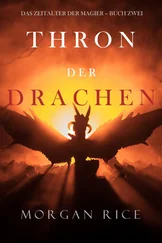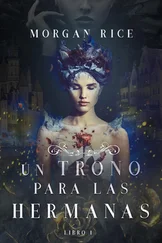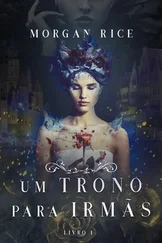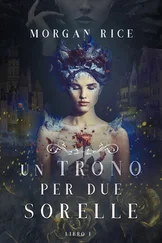We walked slowly down the drive and out onto the little road that leads to the village. Once we had gathered the earth, it was my intention to offer Pearce some refreshment at the Jovial Rushcutters, over which I could tell him what had been said to me. I found, however, that so slow was the pace of Pearce's walk that I was forced to prattle to keep myself from getting cold and thus had come out with my sad story long before we had reached the village, finishing it by hurling the spade away from me in a violent gesture of anguish.
Pearce looked at me. In his large eyes, I did detect a small glimmer of pity, but for some time, during which I retrieved the spade, he walked on in silence. I was just beginning to wonder whether I should embark on my tale again, this time making certain every few sentences that he was listening to me, when Pearce cleared his throat and said:
"It is my belief, all unfashionable as I know it to be, that all things, including lunacy, may be susceptible to cure."
"What?" I said.
"It has been believed since the beginning of time, that the mad are possessed of Devils and are thus filled with evil. This evil, it is universally agreed, must be beaten out of them by extreme chastisement, torture and all other conceivable kinds of cruelty…"
"Pearce," I said, "happy as I am to discuss your work at the New Bedlam at some later time I would ask you now to give your attention to my state of mind and – "
"I am giving my attention to your state of mind, Merivel. If you could, for once, listen to what I have to say instead of disregarding me, you will see that I have some helpful ideas on the subject."
We walked on. A pale sun now emerged from behind a bank of cloud and glimmered eerily upon us.
"Let me describe to you," Pearce went on, "a woman who was brought to me at the Whittlesea Hospital – for such is the name we have given to our Bedlam. This woman had been found half drowned in a ditch after wandering the shire for month upon month, year upon year, begging and shouting obscene words, mortifying her body, particularly her breasts and her arms with sharp hawthorn twigs. Her chief delight, in her poor suffering mind, was to defile. She kept her own excrement in a pouch, with which to smear the hands and fine clothes of those who gave her alms; with the same substance she daubed tombstones and churches. When we took her in, so terrible was her rage that, though I do not like to see this done, we were forced to chain her limbs to the wall. And for several weeks, she fought night and day with her chains, so that her wrists and ankles became running sores, no matter how carefully we bound them with cloth. Do you begin to form a picture of this woman, Merivel?"
"Yes, thank you, Pearce," I said.
"Very well. Let me recount to you then the morning upon which I went to this woman and found her quiet at last. She was sitting hunched in the corner, her limbs folded up and still. As I entered, she lifted her arm and pointed to two large turds she had recently voided onto the floor. I did not particularly wish to look at them, but her pointing was very insistent and the change in her demeanour so considerable that I did what she asked. And when I approached, I saw that writhing in and out of the greenish stools were two great worms, each several inches long, very white and loathsome. And then I looked again at the woman and she was weeping. And I unchained her and we took her away and washed her and put her in a clean bed. And from that day she was calm and talked with us of her home when she was a child and of the baby she had in her sister's care and we knew that she was cured. The worms had poisoned her blood and this poisoned blood had entered her brain. She was not wicked, Merivel. She was ill. Mercifully for her, her body at last discharged from itself the source of her illness."
"I am glad for her," I said flatly.
"And so to you, my dear friend. Now I shall tell you what I perceive has happened. You are possessed by one thought: you wish the King to draw you back to him and to love you. In the absence of this love, you are literally mad with grief. And in time this madness will work horribly in you, so that you will become, like the woman I've just spoken of, a defiler. True, you may not daub others with excrement, but you will daub them with hate. Unless you can come to see your ache for the King's favours as a morbid affliction from which you must rid yourself or die."
Pearce stopped on the road and reached out and placed his bony hands on my shoulders. I opened my mouth to speak, but he went on:
"What happened this morning, those harsh words that were spoken, I can only see as beneficial, Merivel. Do not stop me, but listen! In this knowledge, the knowledge that the King has never loved you, only used you, as I long suspected, lies the only hope of your cure. For this knowledge must be the beneficial evacuation of nature, the rank and putrified stool which, foul as it is, carries out and away the far fouler source of poison and decay – the great worm of hope."
I stared at Pearce. I was unable to speak, so filled was I suddenly with belief in the rightness of what he had said. I could only nod my head and keep nodding it up and down, as if I were a stupid jester trying to jingle the bells on his hat.
Chapter Six. The King's Drops
Some days passed, during which I felt a welcome calm settle upon my spirits.
When Pearce informed me he must return to Whittlesea, I thanked him – with precisely the kind of sentimental profusion he so scorns in me – for saving me, before it was too late, from becoming a veritable lunatic and earnestly begged him to visit me again at Bidnold as soon as his work permitted. He replied that he would pray for me and urged me meanwhile to return to my medical books, "in order," as he put it, "to replace the world of acquisition with the world of knowledge." I had not the heart to tell him that I did not feel capable of doing this. "What I can promise you Pearce," I said, "is that my foolish expectation with regard to all matters Royal is dead. I do not expect, as long as I live, to see the King again. Where my future lies, I cannot tell. In my painting, perhaps?"
I report here that Pearce's opinion of my pictures was very little higher than Finn's, but he made no comment upon this last statement, only busied himself with gathering up his "burning coals" and placing them into a little tragic pile. In a sudden excess of affection for him, I offered to give him my horse, Danseuse, for his journey, but he refused, informing me that the mare was too strong and high-spirited for him and requesting me modestly to purchase a new mule for him.
One of my grooms was duly sent on this errand and returned with a speckled, ungainly creature, "somewhat prone to bite, Sir Robert, but stout-hearted, Sir, for the long trek."
I did not tell Pearce about the biting and the mule was straight away saddled up. Pearce mounted and without further word to me, trotted off down the drive. Just as he reached the first bend, I saw the animal throw its head round and attempt to snap at Pearce's foot. Pearce answered this insult with a kick to the mule's flank and man and beast shot off at gallop, leaving behind them a small plume of dust, at which I stared until it settled.
Feeling chilly and in need of some refreshment, I asked Will to bring a jug of mulled wine to my Withdrawing Room, where I intended to pass an hour or two alone in thought. Somewhat to my consternation, I found Celia there, staring at my bird.
"Ah," I said, "I will not disturb you," beginning to turn and go from the room.
"What is the bird?" enquired Celia.
I hesitated. The notion that Celia, like Pearce, would slander the poor thing depressed me exceedingly.
"It was a gift to me," I said hesitantly. "I am told it is an Indian Nightingale."
Читать дальше











